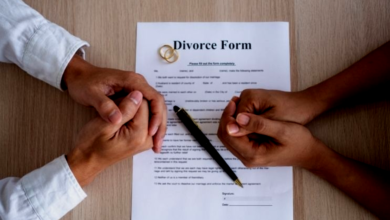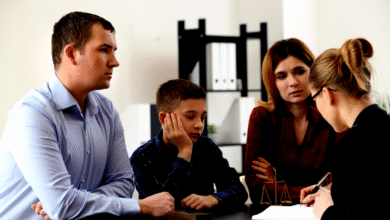Adoption Laws in Washington State – What Every New Parent Should Understand
Learn key Washington State adoption laws requirements and processes for new parents. Essential legal insights for a smooth adoption journey.

Adoption laws in Washington State are designed to create a safe, fair, and supportive process for children, birth parents, and adoptive families. Whether you’re pursuing a domestic, international, foster care, or stepparent adoption, understanding these laws is crucial to navigating the legal requirements smoothly. Washington’s regulations prioritize the child’s best interests while ensuring adoptive parents meet necessary eligibility criteria, complete home studies, and follow proper consent procedures. By familiarizing yourself with these laws, you can confidently move forward in building your family through Adoption Laws.
The adoption process can be both rewarding and complex, requiring careful attention to legal details. Adoption laws in Washington State cover various aspects, including parental rights termination, home study evaluations, and finalization procedures. Each type of Adoption Laws through an agency, foster care, or private arrangement has specific rules that must be followed. This guide will provide a clear overview of what new parents should know, helping you prepare for the emotional and legal journey ahead. With the right knowledge and resources, you can ensure a successful and legally sound adoption experience.
Adoption Laws in Washington State
Understanding Adoption Laws in Washington State
Adoption laws in Washington State are structured to ensure the safety and well-being of children while providing a fair and transparent process for adoptive parents. The state recognizes several types of adoption, each with its own legal requirements. These include agency Adoption Laws, independent adoptions, foster care adoptions, stepparent adoptions, and international adoptions.
Types of Adoption in Washington State
Agency Adoptions
Agency adoptions involve licensed adoption agencies that facilitate the placement of children with adoptive families. These agencies can be either public (state-run) or private. Public agencies typically handle foster care adoptions, while private agencies may assist with domestic infant adoptions. Agencies conduct home studies, background checks, and post-placement supervision to ensure the child’s best interests are met.
Independent Adoptions
Independent adoptions occur when Adoption Laws parents and adoptive parents arrange the adoption without an agency, often through an attorney. Washington State allows independent adoptions but requires that adoptive parents file a petition in court and complete a home study. Birth parents must also provide legal consent, and a waiting period is enforced before the adoption is finalized.
Foster Care Adoptions
Many children in Washington’s foster care system are eligible for adoption. The state prioritizes reunification with birth families, but when that’s not Adoption Laws, foster Adoption Laws may adopt. The process involves working with the Department of Children, Youth, and Families (DCYF), completing training, and meeting legal requirements. Financial assistance and post-adoption support are often available.
Stepparent Adoptions
Stepparent adoptions are common when a biological parent’s rights are terminated voluntarily or involuntarily. The process requires consent from the non-custodial parent unless their rights have been legally terminated. A home study may be waived if the child has lived with the Adoption Laws for a significant period.
International Adoptions
Washington families adopting internationally must comply with both U.S. federal laws and the laws of the child’s home country. The Hague Adoption Convention governs many international adoptions, requiring additional steps like immigration approval and foreign court processes.
Eligibility Requirements for Adoptive Parents
Washington State has inclusive adoption laws, allowing single adults, married couples, and domestic partners to adopt. Key requirements include Being at least 18 years old. Passing a criminal background check. Completing a home study (for most adoptions). Demonstrating Adoption Laws stability and emotional readiness.
Consent and Termination of Parental Rights
A critical aspect of adoption is obtaining legal consent from birth parents or terminating their rights. In Washington Birth parents must voluntarily consent in writing, typically after the child’s birth. Consent can be revoked within 48 hours, but after that, it becomes irrevocable unless fraud or coercion is proven. Parental rights may be terminated involuntarily in cases of abuse, neglect, or abandonment.
The Home Study Process
Background Checks The home study includes criminal history and child abuse clearances to ensure the safety of the child. Home Assessment A social worker conducts home visits to evaluate living conditions, stability, and overall suitability for adoption. Interviews & Documentation All household members are interviewed, and financial/medical records are reviewed to Adoption Laws the family’s readiness to adopt.
Finalizing the Adoption
After an adoptive placement, parents must file a legal petition to finalize the adoption in court. A judge reviews the case ensuring all legal requirements are met and that the adoption serves the child’s best interests before issuing a final decree of adoption, which legally establishes the parent-child relationship. In some cases, post-placement supervision by a social worker may be required for a set period to assess the child’s adjustment and the family’s stability before the adoption is finalized. This process ensures a secure and legally recognized transition for the child into their new family.
Post-Adoption Support
Counseling & Support Groups
Washington offers a range of mental health Adoption Laws to support adoptive families, including individual and family therapy, as well as specialized support groups designed to address the unique challenges of adoption. These services focus on helping children and parents navigate attachment difficulties, trauma, behavioral issues, and family dynamics, ensuring a smoother transition and stronger relationships. Licensed therapists with adoption expertise, along with peer-led support networks, provide tailored guidance to promote emotional well-being and long-term stability for adoptive families.
Financial Assistance & Subsidies
Washington provides financial support to adoptive families through programs like adoption subsidies, which offer monthly payments to assist with the child’s ongoing care, particularly for children with special needs. Eligible families may also receive Medicaid coverage to ensure the child’s healthcare needs are met, along with reimbursements for adoption-related Adoption Laws such as legal fees, home studies, and travel costs. These financial resources help reduce the economic challenges of adoption, making it more accessible for families while ensuring stability and support for the child’s long-term well-being.
Read More: The Impact of Automation on Labor: Challenges and Opportunities Ahead
Conclusion
Adoption laws in Washington State provide a structured yet compassionate framework to help families navigate the life-changing journey of adoption. By understanding the legal requirements from eligibility criteria to finalization procedures prospective parents can approach the process with confidence and clarity. Whether adopting through foster care, a private agency, or as a stepparent, being well-informed ensures that the child’s best interests remain at the heart of every decision.
Ultimately, adoption laws in Washington State are designed to protect all parties involved while creating loving, permanent homes for children in need. While the legal process may seem daunting, resources such as adoption agencies, attorneys, and support groups are available to guide families every step of the way. With patience, preparation, and the right legal knowledge, adoptive parents can look forward to a rewarding future with their new family member.
FAQs
How long does the adoption process take in Washington?
The timeline varies private adoptions may take months, while foster care adoptions can take over a year due to legal and procedural requirements.
Can same-sex couples adopt in Washington?
Yes, Washington State allows same-sex couples and LGBTQ+ individuals to adopt without restrictions.
What are the costs associated with adoption?
Costs vary widely foster care adoptions may be low-cost, while private or international adoptions can range from 20,000to50,000.
Can birth parents reclaim their child after adoption?
Once an adoption is finalized, birth parents cannot reclaim parental rights unless fraud or coercion is proven in court.
Are there subsidies for adopting from foster care?
Yes, many children in foster care qualify for state and federal adoption assistance programs to cover medical, educational, and living expenses.











